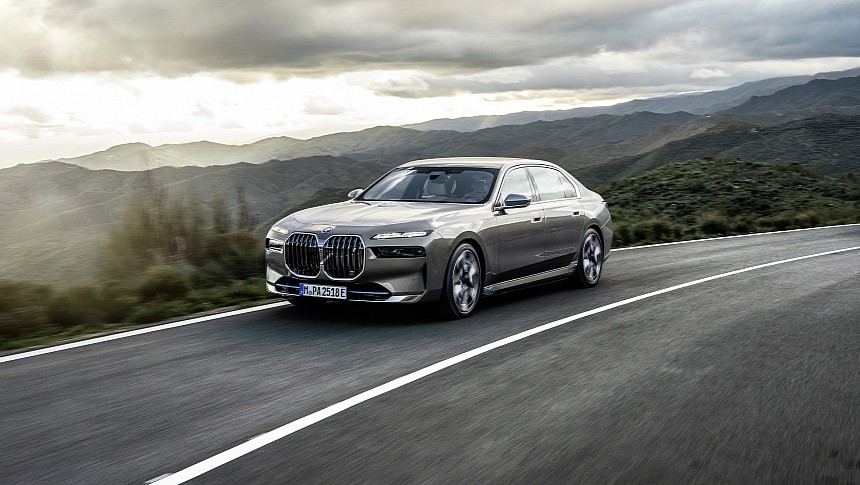Chrome plating is set to be banned over health-related issues, with one of them being the risk of lung cancer. The move might lead to a serious shift in car design.
That may sound a bit like "the earth is flat," but it is actually the result of years of studies carried out by health specialists. The airborne emissions caused by the plating process are said to be 500 more toxic than diesel and can cause serious health problems. The hexavalent chromium involved in production is known as being a carcinogen. It is a source of lung cancer.
The substances that can indeed fight such emissions, chemical fume depressants, contain Perfluoroalkyl and Plyfluoroalkyl Substances (PFAS), which are also highly toxic.
The ban is set to take place in 2024 across Europe. So there is not much time left for carmakers to come up with something else when they will have to ditch the chrome. There are brands that have given up on the silver-looking material for some of the versions in their lineups. That is what the Night Package from Mercedes and Shadowline from BMW actually do: chrome-delete and replace the shiny elements with dark ones.
Chrome is not just for the extra glitz, but it also plays a part in anti-corrosive protection to metals used on the exterior of the car.
The proposal has also been made in California, where they have already voted to outlaw chrome, but not before 2039. That would be 15 years after the ban will be in force in Europe.
This means that not a single new car sold in the European Union or the United States can feature chrome plating starting in 2024, 2039, respectively. Car companies must instead come up with an alternative material of similar quality and function. Such a radical move was also made back in 2003, when lead and mercury were banned for use in any car sold in the European Union.
The decision will affect the suppliers of chrome in the car industry. They will have to retrofit the business or look elsewhere for supply contracts.
Gilles Vidal, former Peugeot and current Renault chief designer, hopes that various other non-polluting solutions will be explored. "It is time we changed the game a little bit and opened our minds beyond chrome," Vidal said, as reported by Autocar.
Carmakers have been indeed looking for alternative solutions for the body and for the cabin of vehicles, but the evaluation and implementation would lead to unplanned costs. That is how materials such as slate or cork have ended up in cabins. For the replacement of chrome, nickel and zinc plating or thermal spray coating could do the trick.
The decision is, though, very unlikely to affect classic cars since they go by different regulations.
The substances that can indeed fight such emissions, chemical fume depressants, contain Perfluoroalkyl and Plyfluoroalkyl Substances (PFAS), which are also highly toxic.
The ban is set to take place in 2024 across Europe. So there is not much time left for carmakers to come up with something else when they will have to ditch the chrome. There are brands that have given up on the silver-looking material for some of the versions in their lineups. That is what the Night Package from Mercedes and Shadowline from BMW actually do: chrome-delete and replace the shiny elements with dark ones.
Chrome is not just for the extra glitz, but it also plays a part in anti-corrosive protection to metals used on the exterior of the car.
The proposal has also been made in California, where they have already voted to outlaw chrome, but not before 2039. That would be 15 years after the ban will be in force in Europe.
This means that not a single new car sold in the European Union or the United States can feature chrome plating starting in 2024, 2039, respectively. Car companies must instead come up with an alternative material of similar quality and function. Such a radical move was also made back in 2003, when lead and mercury were banned for use in any car sold in the European Union.
The decision will affect the suppliers of chrome in the car industry. They will have to retrofit the business or look elsewhere for supply contracts.
Gilles Vidal, former Peugeot and current Renault chief designer, hopes that various other non-polluting solutions will be explored. "It is time we changed the game a little bit and opened our minds beyond chrome," Vidal said, as reported by Autocar.
Carmakers have been indeed looking for alternative solutions for the body and for the cabin of vehicles, but the evaluation and implementation would lead to unplanned costs. That is how materials such as slate or cork have ended up in cabins. For the replacement of chrome, nickel and zinc plating or thermal spray coating could do the trick.
The decision is, though, very unlikely to affect classic cars since they go by different regulations.






